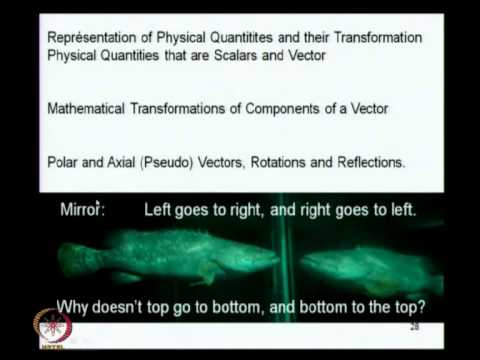Description:
Instructor: Professor P.C. Deshmukh, Department of Physics, IIT Madras.
This course has grown out of the first course in Physics taught to engineering students at IIT-Madras. However, the contents are expanded to include the interests of students of basic sciences and a strong emphasis on the foundations of classical mechanics is aimed at.
Essentially, foundations of 'classical mechanics' would include a comprehensive introduction to Newtonian, Lagrangian and Hamiltonian Mechanics, and include an introduction to mechanics of a system of particles, fluid mechanics, introduction to 'chaos', to the special theory of relativity and also to electrodynamics.
The course is designed as the first-course students would take after high school, and the scope of some of the advanced topics that are introduced is therefore restricted. A comfortable introduction, adequately rigorous but not overly involved, to advanced applications, is attempted. In this course, we emphasize that 'observation' and 'measurements' play a fundamental role in Physics.
We introduce mathematical methods as and where needed, but keep the focus on physical principles. The course aims, even as it will provide a rigorous introduction to the foundations of classical mechanics, at discovering the romance in physics, beauty in its simplicity, and rigor in its formulation.
Read more

Special Topics in Classical Mechanics
Add to list
#Science
#Physics
#Classical Mechanics
#Waves
#Engineering
#Electronics
#Electronic Circuits
#Oscillators
#Mathematics
#Polar Coordinates
#Equations of Motion